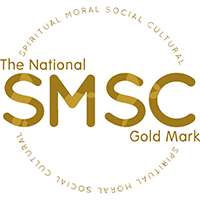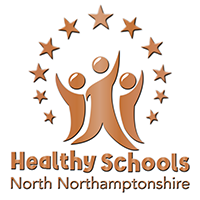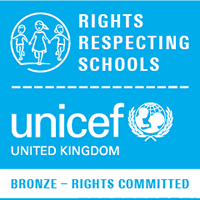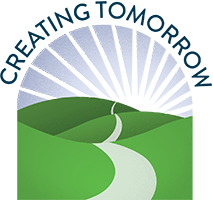Personal Development (PD)
- Mental Health & Wellbeing
- PSHE/RSE
- Cultural Capital (SMSC-BV)
- Careers (working towards the future)
- Physical Activity
- Healthy Eating
- Sustainability
This section also includes information on Enterprise, Enrichment and the School Council.
Mental Health and Wellbeing
At Wren Spinney School, we prioritise the mental health and well-being of both our students and staff as a foundational aspect of our educational mission. Recognising that a positive and supportive environment is essential for the holistic development of individuals, we are committed to fostering a culture where everyone feels valued, heard, and understood.
For our students, this commitment means providing resources, programs, and support structures that promote emotional resilience, self-awareness, and effective coping mechanisms. Through initiatives such as sensory experiences, emotional literacy support assistance, relaxed kids, mental health first-aiders and mindfulness activities, we aim to empower our students to navigate the challenges of life with confidence and emotional intelligence.
Equally, we understand that the well-being of our staff is crucial to creating a healthy and thriving learning environment. We invest in professional development opportunities, offer support mechanisms, and encourage open dialogue about mental health. By fostering a workplace culture that prioritises the mental well-being of our educators, we believe we can enhance the overall school experience for both staff and students.
At Wren Spinney, mental health and well-being are not merely priorities; they are fundamental components woven into the fabric of our educational ethos. We are dedicated to creating an environment where both students and staff can flourish emotionally, socially, and academically, ultimately contributing to a resilient and thriving school community.
Physical Activity
Physical activity takes place daily across Wren Spinney in a variety of different ways. Many classes include a weekly PE session on their timetable, making use of the hall or outdoor areas. Classes often group together, for larger dance and disco sessions, as well as parachute games.
Learners make daily use of the playground equipment and outside spaces, including outdoor gym equipment. Physical activity also presents itself through travel training, community access, and travel through school. Learners frequently complete tasks that require navigation to other areas of the school.
The soft play and sensory rooms also provide spaces for physical activity, as do daily sensory circuits. Additionally, activities such as horse riding, and swimming, are offered to learners throughout the year – providing the opportunity for activity outside the school provision. Occupational therapy and physical therapy are also offered to learners, where required.
Healthy Eating
Wren Spinney School has been awarded a Bronze Award by Healthy Schools Northamptonshire. This award focuses on Mental Health and Well-Being, Physical Activity, PSHE and Healthy Eating. We are a nut-free school and our external provider is committed to offering meals in line with government recommendations for sugar intake. We aim to maximise student independence around preparing snacks, drinks and main meals. Wren Spinney School works proactively with parents and carers to provide healthy, balanced packed lunches for our students, taking into account their needs.
Sustainability
Sustainability at Wren Spinney School is more than a commitment; it's an integral part of our ethos and daily practices. We understand the importance of fostering environmental stewardship, promoting responsible resource management, and instilling a sense of eco-consciousness in our students and staff.
- Environmental Education: We believe in equipping our students with the knowledge and awareness needed to become environmentally responsible citizens. Our curriculum incorporates elements of environmental education.
- Green Initiatives: Wren Spinney School actively engages in green initiatives to reduce our environmental footprint. From waste reduction programs and energy-saving measures to water conservation efforts, we continually seek ways to minimise our impact on the environment.
- School Gardens and Outdoor Learning: Our school embraces the concept of outdoor learning, including the maintenance of school gardens and horticulture spaces, including an allotment. These green spaces serve not only as educational tools but also as platforms for students to actively participate in sustainable practices, such as soil to plate.
- Recycling Programs: We are committed to responsible waste management through comprehensive recycling programs. Students are responsible for ensuring that recycling bins are strategically placed throughout the school, making it easy for students and staff to participate in reducing waste and promoting a circular economy.
- Energy Efficiency: Wren Spinney School is dedicated to energy efficiency. From utilising energy-efficient appliances and lighting to implementing practices that reduce overall energy consumption, we actively seek ways to minimise our carbon footprint.
- Student-Led Initiatives: Empowering our students to take the lead, we encourage and support student-led sustainability initiatives.
- Continuous Improvement: Wren Spinney School recognises that sustainability is an evolving journey. We regularly assess our practices, seek opportunities for improvement, and remain dedicated to adapting and adopting innovative solutions that align with our commitment to environmental responsibility.
Sustainability at Wren Spinney School is not just a checkbox; it's a shared responsibility and a way of life. By embedding sustainable practices into our educational approach, we strive to inspire a generation of environmentally conscious individuals who will contribute to a more sustainable and resilient future.
Enterprise
The enterprise group works on several profit-making schemes throughout the year. This includes: making and selling candles; making and selling cards; and, running a tuck-shop throughout the year. The enterprise curriculum allows learners to develop and utilise their numeracy, communication, and problem-solving skills through hands-on projects. Learners are fully involved in the development of ideas, ordering items, deciding on prices, creating items, and selling.
Through enterprise, learners have the opportunity to understand the foundations of running a project for profit, managing their money, and selling to customers. Learners work together in a co-operative group, listening to each other and developing working relationships. Learners are encouraged to voice their opinions and action any ideas they have.
Community visits are also offered to the enterprise group, through trips to wholesalers, stores, and a well-deserved reward at the end of the year (such as, bowling)!
Enrichment
Examples of enrichment activities we take part in:
- Music Man
- Horse Riding
- Swimming
- Enterprise (Tuck Shop)
- Brass Band (Winter Term)
- Zoolab
- Sensory Experiences
- Rotary Kids Day Out at Wicksteed Park (Summer Term)
- Rotary Star of The Year
- Party in the Playground (Summer Term)
- ‘Bubble’ Lady
- Donkeys (Summer Term)
- Art Competition
- Celebration Days
The allotment and newly developed horticulture area provide enrichment opportunities for learners. Students take part in the land-to-plate process through: planting, caring for plants, picking their crops, and cooking with their ingredients. The horticulture area provides an excellent provision for learners on the school site, with vegetable beds, plant troughs and an orchard. All learners are able to access growing opportunities, and develop skills in caring for plants. Additionally, the allotment provides an off-site experience for learners. Learners visiting the allotment will learn to use tools to care for the land, and prepare the area for planting.
All fruits and vegetables used are incorporated into food-tech sessions. Learners will see the use that their produce can have, and experience ways to cook this. Learners begin to develop an understanding of sustainability and how to produce their own food.
Student Council
The student council is a group of learners, selected by peers and staff, that represent the students of Wren Spinney. The council meets termly, taking part in crucial decision-making of events and activities in school.
So far, the council have supported with: choosing books for world book day; raising money for playground equipment; and, choosing whole-school activities. Councillors have also conducted school tours for new staff and visitors, and formed an interview panel for potential members of staff.






